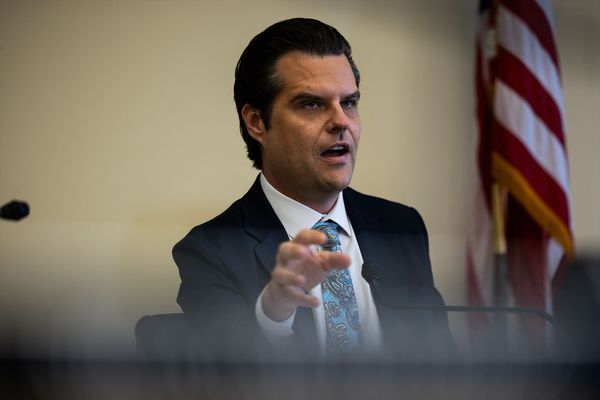
The Biden administration’s legislative wins this week aren’t just important for the US economy (and the Democrats ahead of the looming midterms). They also represent a massive opportunity for Australia.
The Inflation Reduction Act of 2022 (IRA) passed this week comes with $485 billion (A$690 billion) of spending plans, and complements the US$280 billion CHIPS Act passed in July and signed by President Biden this week.
They will combine with the $1 trillion Infrastructure Investment and Jobs Act enacted last November to drive massive additional private- and public-sector energy investment and boost US manufacturing. It’s a colossal piece of policy architecture aimed at bolstering the US’s resilience and security in energy policy — with the obvious goal of freeing the world’s biggest economy from any dependence on China.
Primarily, it will provide the certainty of a decade of tax concessions and subsidies to drive investment in renewables, storage and hydrogen, as well as encouraging consumers to purchase energy-efficient and renewables products.
And as it turns out, Australia is very well-placed to benefit from it, more so than almost any other country.
Our exports of the crucial renewables input lithium have risen sharply this year and topped $1 billion a month, compared to just $109 million in June 2021. That’s mostly been driven by price rises, but our volume of exports has also been increasing. We’re the world’s biggest lithium exporter, supplying nearly half of the world’s lithium. Nearly all of it comes from Western Australia.
But over 90% of our exports head to China at the moment. The new US legislation will provide a growing diversification for our producers. Why? Because raw materials and other products from a country with a free trade agreement with the US will qualify for support.
The IRA includes an extension of the US$7500 tax credit relief for new electric vehicles beyond the current 200,000 vehicle cap — if they’re built with at least 40% North American-sourced or trade agreement critical minerals (e.g. cobalt, graphite, nickel and manganese as well as lithium). That requirement will increase to 80% in 2026.
Australia has both the minerals and the trade agreement to meet that.
Chinese companies in Australia such as Tianqi (in the huge Greenbushes mine with Albemarle of the US and IGO of Australia) will find it increasingly tough to supply the US under the new act given their Australian-sourced lithium goes to China first. Ganfeng, another Chinese major, and CATL, the world’s biggest battery maker, will find it hard to source from Australia and supply American vehicles.
Chinese carmakers such as BYD (8% owned by Warren Buffett’s Berkshire Hathaway) will be able to continue to sell cars into the US (but not batteries) but will not be able to get tax credits.
The Biden administration is determined to secure US control of its renewables supply chain — something Trump and the Republicans, for all their economic sabre-rattling against China, never contemplated. A 10% advanced manufacturing production tax credit will apply across the breadth of the lithium ion supply chain, which would help ease the cost burdens facing battery manufacturers and automakers. An investment tax credit is also included for battery cell manufacturing with a cost of $35 a kilowatt-hour.
Earlier this year Biden invoked the Defense Production Act (DPA) to step up US production of minerals for electric vehicle and storage batteries. Separately, the US Department of Energy (DOE) dedicated $US3.16 billion of funding to develop the country’s battery supply chain.
Given China’s domination of lithium, nickel, cobalt and other key “green metal” supplies, weaning the US off Chinese (and Russian) sourced materials will take a long time. And part of that, some observers note, will involve new mines and processing plants in countries like Australia and Chile, which also has a free trade agreement with the US.
Since its inception nearly 20 years ago, the Howard government’s free trade agreement with the US has — like all other trade deals — delivered minimal benefits to Australia. Growth in US exports to Australia have far outstripped growth in our exports to the US. Belatedly, that might be about to change. That it will result from colossal investment in climate action is pretty ironic given the climate denialism of Howard and George W Bush.







